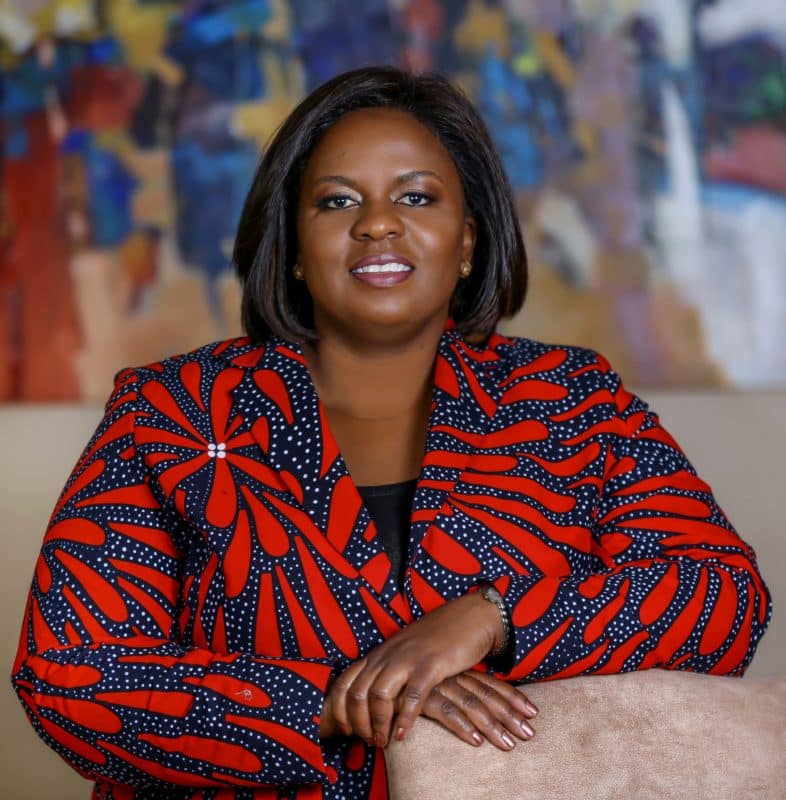
Climate change is an existential threat to businesses and communities across the world, with the African continent at high risk, but determined action can build a more resilient and prosperous future for all, writes Sanda Ojiambo
From 4 to 6 September, global leaders will meet in Nairobi at the Africa Climate Summit to discuss the disproportionate impact of global warming on the African continent. As innovators, employers and creators of wealth, businesses are active participants in the design and adoption of climate solutions. It is their gateway to a greener, more resilient and more prosperous future.
The African Development Bank estimates Africa has been losing 5 to 15 percent of its per capita GDP growth every year because of climate change and its related impacts. For businesses, this translates into billions of dollars of losses or foregone opportunities each year.
Africa’s Business leaders understand the urgency of the climate crisis and the need to act. Whenever climate disasters strike, businesses struggle with disrupted supply chains, increased operating costs and the loss of production and assets.
United in the climate fight
In response, businesses are coming together to take action. Last year, more than 55 CEOs representing one million employees and $140 billion in revenues formed the UN Global Compact African Business Leaders Coalition. These private-sector actors are important because they represent a large slice of the economy. They come from many sectors, including construction, telecoms and medical services, and have all experienced the impacts of climate change on their businesses . They have the size and networks to act as strong advocates for investment opportunities in Africa, and they are also willing to invest and scale up green solutions.
This is the first time a group of African private-sector leaders from north, south, east and west has committed to the climate fight. Now we need more companies to join them.
The goal of the coalition is to call for more businesses to fulfill their climate commitments and become resilient to climate change. For example, the group has pledged to increase the share of renewables in their energy use. Members have also pledged to invest in climate-adaptation solutions and create them where they don’t exist. And they are committed to a just and equitable transition – one which ensures that their supply chains, value chains and local customers are the first to benefit from the switch to clean energy and greener forms of production. This will not be a wasted effort or a sunk cost – it’s estimated that the climate-adaptation market could be worth $2 trillion a year globally by 2026.
Accelerating Solutions
But to achieve these goals, African businesses need a fair and equitable playing field. In particular, the global community must act to dismantle barriers that are limiting the access of African companies to affordable finance and clean technologies. To be clear, businesses are not asking for grants or other forms of aid. They are asking for equitable access to the resources that will enable Africa’s green transition.
At present, African governments and businesses pay an unfair “perception risk premium” when they borrow on the international financial markets. They continue to be perceived as riskier than their counterparts elsewhere in the world despite the measurable progress of the past two decades – with extreme poverty down by one-third, life expectancy up by one-fifth and real per-capita incomes up 50 percent on average.
Despite these visible improvements, the UNDP estimates African countries and businesses are paying $74.5 billion in excess interest and foregone funding a year as a result of this unfair risk premium. For context, $74.5 billion a year would cover 80 percent of Africa’s annual infrastructure investment needs. Meanwhile, the International Finance Corporation, the World Bank’s private lending arm, estimates small and medium-sized enterprises (SMEs), which account for 90 percent of all businesses, 50 percent of employment and 40 percent of GDP across the continent, face a funding gap of $330 billion a year.
Tackling the future together
This funding gap acts as a severe constraint on growth and limits Africa’s potential. For example, the continent accounted for just 0.6 percent of the $434 billion invested in renewables worldwide in 2021, despite Africa’s outstanding natural resources, rapidly growing electricity demand and improving policy frameworks.
African business leaders in the African Business Leaders Coalition argue that if finance and capital were accessible, it would be much easier to fund the transition to a greener and more resilient economy.
Next week’s Africa Climate Summit is therefore a great opportunity for the continent’s private sector to engage with governments, donors and multilateral institutions to gain traction on some of these issues. It is their chance to demonstrate the commitment of Africa’s private sector to climate action and accelerate inclusive and sustainable business opportunities